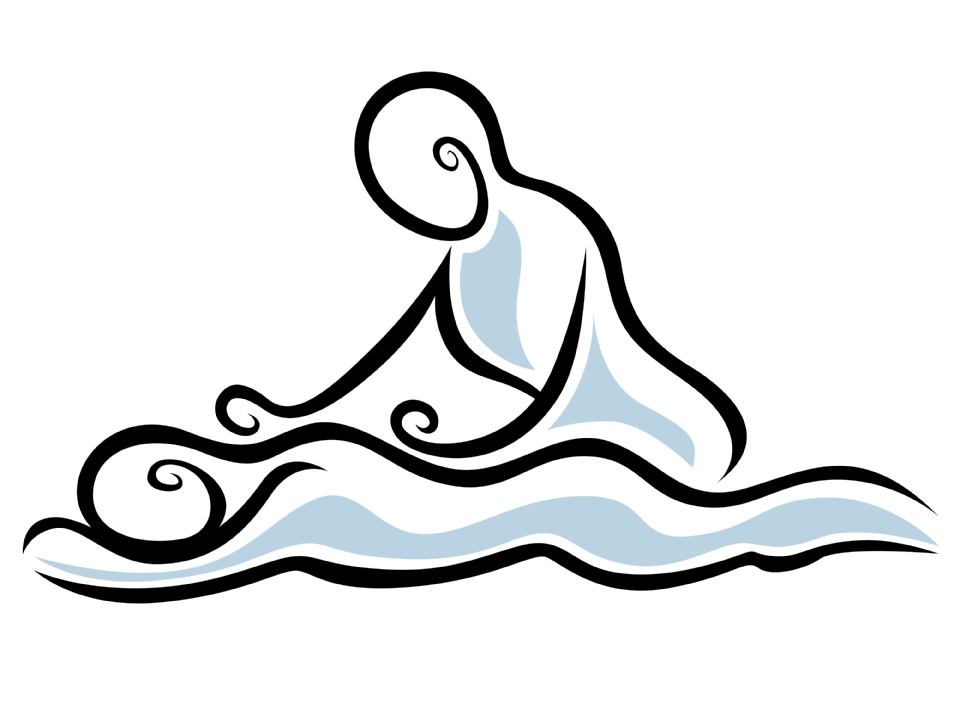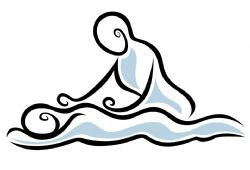The term "massage therapy" encompasses many
different techniques. In general, therapists press, rub, and otherwise
manipulate the muscles and other soft tissues of the body. They most often use
their hands and fingers, but may use their forearms, elbows, or feet.
Suzanne Brazau is
a clinical certified massage therapist practicing in Laval. She wanted to share
with our readers her knowledge and her rewarding experience from massotherapy.
Ms. Brazau explained that massotherapy is a treatment by massage and
she offers a personal follow-up massage treatment which is not found in spas. Massage therapists work in a
variety of settings, including private offices, hospitals, nursing homes,
studios, and sport and fitness facilities. Some also travel to
patients' homes or workplaces. They usually try to provide a calm and soothing
environment.
She described the different types of massage
therapy. In Swedish massage, the therapist uses long strokes, kneading, deep
circular movements, vibration, and tapping. Sports massage is similar to
Swedish massage, adapted specifically to the needs of athletes. Among the many
other examples are deep tissue massage and trigger point massage, which focuses
on myofascial trigger points -- muscle "knots" that are painful when
pressed and will release tension throughout the body.
She does reflexology and acupressure because
she prefers the touch approach instead of acupuncture,
the Asian practice of using tiny needles. She has done reflexology where the
client sees results two or three days later after a full massage. She said, “I
explain what I’ll do and how it’ll affect them. I understand their needs and
they trust me. It’s an exchange. I’ll go as deep as your muscles will allow me
to.”
Patient-physician communication is an integral part of clinical practice, and
this is one of Suzanne’s philosophies. “Without it, I wouldn't have the success
I have. I communicate with my clients before and after the massage.” Therapists usually ask new
patients about symptoms, medical history, and desired results. They may also
perform an evaluation through touch, to locate painful or tense areas and
determine how much pressure to apply. “I care about my
clients and I ask questions whether they’re new or regular clients,” she added.
Relaxing means different things to different people. Suzanne
reiterated that it is paramount to ask her clients to fill out a detailed
questionnaire in order for her to get a better idea of what they need. Once
they fill it out, she goes over it with them. She clarified by saying, “Sometimes
they come to treat an ailment such as lower backache but after filling out the
questionnaire, they discover they need massage in also other areas.
I assess clients' soft tissue condition,
joint mobility and function, muscle tension, and range of motion. I personalize every single massage.” In other words, she changes the
massage to what the person needs so they don’t get the same type of massage
every time they come in. The massage varies depending on each individual’s
response to the treatment. Their bodies react to the massage so the follow-up
is not the same as the initial treatment.
Wherever you are in Canada the requirements for massotherapists are different,
but in Quebec you don’t have to be certified. Suzanne is certified. “It is
important to be certified in order to understand the body, the tendons,
skeletal and muscular system in order to treat clients properly,” she explained.
A massotherapist needs to know what conditions or diseases people have. For
instance, you can treat someone that has high blood pressure, but if the person
is not taking medication the massage can increase blood flow and can result in
adverse effects. That’s why for Suzanne, asking a lot of questions before
starting treatment, is extremely important.
Although some statistics show that only 11 percent of all
conventional treatments are actually estimated to be beneficial, Suzanne
believes that the recovery rate varies. It depends on what you’re recovering
from; for instance, they could be recovering from breast implants, cancer,
surgery, etc. That depends on each person. She always sees improvement and
clients feel better. Nowadays, more and
more people are seeking alternative medicine in order to avoid taking pills. Massage
therapy is also considered preventative medicine since it helps
regulate hormones, stress, and is also useful for stimulating
the lymphatic system to boost the immune system and get rid of toxins in the
body. However, chronic diseases are a different story. Before treating anyone
who suffers from a chronic disease, she requires a doctor’s approval.
A session can
last anywhere from 60 minutes, 90 minutes, to 120 minutes. One person is different from another. “After
the treatment, I will see my clients on a need-to-need basis. I assess how the
body reacts between massages,” she explained.
Massotherapy is covered by a wide range of
insurance companies which benefits the entire family.
Suzanne also specializes in pregnancy massage and massage for
children. She said, “The amount of children that come to see me is incredible.”
An adult is present at all times while she gives massage to the child. She also
gives advice to parents on how to improve their kids’ well-being and wellness
maintenance.
There are tremendous benefits to be achieved through regular massage
therapy treatments by a certified massage therapist as is Suzanne Brazau.
Whether your need to have a moment of relaxation, reduce muscle tension, or
attain relief from chronic pain, a massage can enhance your overall sense of
emotional and physical well-being.
For a consultation or further inquiries, contact Suzanne Brazau via e-mail at; suzanne@sbmassages.com or via phone; 514-654-3839 you can also visit her website sbmassages.com
Business Location; 1034 rue Carole, Laval, QC, H7X 2E4

 In The Latest Issue:
In The Latest Issue:


 BY:
BY: 

Tweet
Share